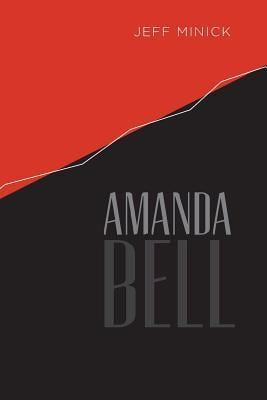Admittedly, I approached Amanda Bell with a degree of caution. I am, to say the least, wary of fiction, especially fiction centered around a female protagonist who is on a path of self-understanding and realization. The soppy novels of an Emily Giffin or a Helen Fielding come to mind.
But rest assured, Jeff Minick’s first novel is in no way a Bridget Jones’s Diary with a traditionalist flavor. Neither does it possess the disagreeable naturalism of Tom Wolfe’s I Am Charlotte Simmons—another novel about a young woman trying to make it in Middle America. Instead, Amanda Bell appeals without being sappy, anachronistic, or sanctimonious. Long known to Chronicles readers for his Letter to the Bishop columns (written under the monicker “Joe Ecclesia”) and mesmerizing stories of life in North Carolina, Minick takes his audience on an intimate tour of one young life that is formed, shattered, and rebuilt against the backdrop of today’s American South.
Minick’s Amanda Bell is an accurate, if dramatized, example of today’s “professional woman”—a species forged in the wretched crucible of feminism, faithlessness, and political correctness. With Dostoyevskian skill, Minick breaks up his heroine’s persona into three distinct stages.
The first is Amanda Bell the careerist—bitterly nicknamed “Immaculate Perfection” by her long-suffering subordinates at an Atlanta law firm. This part of the novel, the shortest, is the most rich in description and provides a splendid glimpse into the superficial and spiritually empty lives of today’s young professionals.
Amanda finds herself stuck overnight in an airport, where she is immediately assaulted by a panoply of characters who seek her help, attracted by her no-nonsense competence. Every one of them is remarkably realistic. You could picture the sobbing coed, despondent over her breakup, sitting next to you in Starbucks, or imagine the guilt-ridden corporate slave, sliding up to you half-drunk, with his tie at half mast, on the verge of tears over his moral failings. Exuding the resolute firmness of a Soviet icebreaker, Amanda guides and counsels all of these restless souls, mercilessly ordering them around like the paralegals and secretaries she’s in charge of at work.
And then she encounters a wizard. Wearing a Roman collar instead of a star-studded hat, and armed with a prayer book in lieu of a magic wand, Fr. Joseph Krumpler is the lighthouse in the sea of darkness that envelops Amanda Bell. Undoubtedly, readers will see their favorite priest, pastor, or rabbi in Father Krumpler: the charming eccentricity that endears rather than annoys; the deep, unwavering faith; and a pious blend of mercy and admonition.
The second part of the novel is free of untoward details, yet is at times hard to read, owing to the sheer horror of what befalls Amanda. Beset by professional ruin, so common in today’s Great Recession America, and destroyed by a personal tragedy of unspeakable evil and cruelty, Amanda wanders off on a wretched, heartrending journey.
Utterly shattered and staring into an abyss of despair, she eventually makes her way to Father Krumpler and the community of his parishioners. Amanda starts taking care of four siblings whose mother was brutally murdered and whose father withdrew into a self-imposed jail of sorrow and bitterness. Deliberately, as in a Victorian novel, comes the transformation of a cold, haughty, and agnostic corporate cyborg into a devoted, warm, and devout young lady.
Not all is well, however. Minick pulls no punches in describing the inner life of an average American Catholic parish. Take his description of the shabby liberal (not Father Krumpler) who serves as the pastor: “He was a pale, corpulent man, a stirring homilist who apparently deemed racial prejudice and immigration laws the chief stumbling blocks to entry into heaven . . . ”
Jeff Minick’s novel is a mix of humor and tragedy, warmth and somberness that will echo deep in readers’ souls. With Amanda Bell, Minick firmly establishes himself as one of America’s best writers.
[Amanda Bell, by Jeff Minick (CreateSpace) 360 pp., $14.95]

Leave a Reply